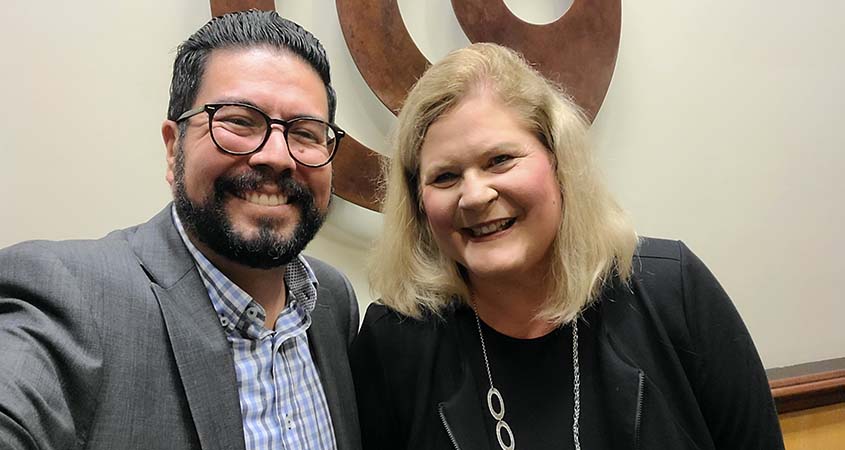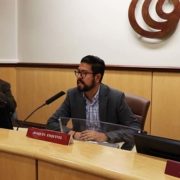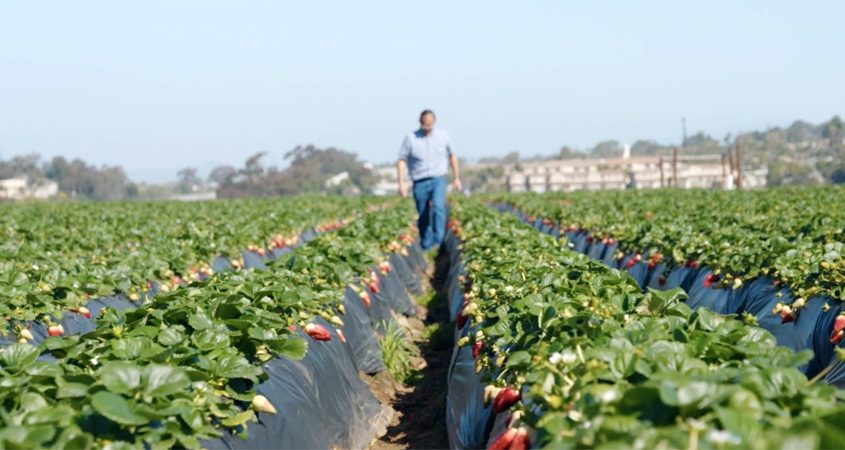Water affordability for ratepayers was the topic of discussion during a legislative roundtable Thursday at the San Diego County Water Authority.
The Water Authority convened state, regional and local officials in search of winning strategies for enhancing water affordability for ratepayers across the county and the state.
Water agency managers, board members, elected officials and their representatives from throughout the county joined E. Joaquin Esquivel, chair of the State Water Resources Control Board, to assess and address water affordability issues.
Esquivel was appointed to the Water Resources Control Board by Governor Jerry Brown in March 2017. In February 2019, Governor Gavin Newsom named Esquivel chair of that five-member board, to which he was reappointed in 2021.
During the roundtable, Esquivel said maintaining water affordability and access to safe water for Californians is challenged by pressures that include aging infrastructure and climate change.
“How to sustain our systems in the next 10, 20, 50 years is a complex issue, but we need to collectively expand access, while maintaining affordability and supply,” he said.
Water affordability and infrastructure projects
Esquivel said state loans to water projects statewide help water affordability and access to a safe, clean supply.
“Water has created the wealth of this state, and water supply investments made here are examples of what needs to be done,” said Esquivel, referring to successful supply diversification investments by the Water Authority and its 24 member agencies.
He also discussed the need for additional water infrastructure projects – including desalination, groundwater recharge, and potable reuse, and an increase in funding sources for those projects – and the importance of federal funding to help ensure access to safe and affordable water for all communities.

State Water Resources Control Board Chair E. Joaquin Esquivel and San Diego County Water Authority General Manager Sandra L. Kerl discussed water affordability Sept. 29 in San Diego. Photo: San Diego County Water Authority
Water Authority commitment to affordability
Water Authority General Manager Sandra Kerl detailed some of the agency’s affordability efforts in recent years.
“The Water Authority is committed to maintaining an affordable water supply and finding solutions to inherently complex challenges related to water costs, rates and investments,” said Kerl. “Significant advances in affordability can only be achieved through the combined efforts of all four sectors that affect the cost of water for our region. Those sectors are the federal government, state government, wholesale water agencies and local water retailers.”
Reliable supply
Kerl said the Water Authority’s commitment to affordability includes securing $25 million from the State of California to pay water bills for San Diego County residents impacted by COVID-19; securing $90 million over the past two years through successful litigation efforts and distributing that money directly to its 24 member agencies; avoiding hundreds of millions of dollars in future costs on water deliveries; and maintaining strong credit ratings that reduce the cost of infrastructure.
“Everything at the Water Authority is designed to deliver a safe and reliable water supply at an affordable cost, and the agency has taken numerous steps over the past three years to enhance affordability,” Kerl said. “Water affordability is imperative to equitable water access. This resource should be available to all regardless of race, ethnicity, or income level. Nobody should have to choose between safe, clean water and affordable water.”
Collaboration on solutions
Kerl said that the federal and state government, wholesale water agencies, and local water retailers can work together in finding solutions to the complex challenges related to water costs, rates and investments.
A recent poll by the Water Authority found that more than half of the residents of San Diego County would support a hypothetical program that provided water discounts or an assistance program for low-income ratepayers – even if they had to pay a few dollars more a month to fund it.
The Water Authority holds periodic legislative roundtables to promote collaboration with the water industry, civic and business leaders, on critical water issues in the San Diego region.






